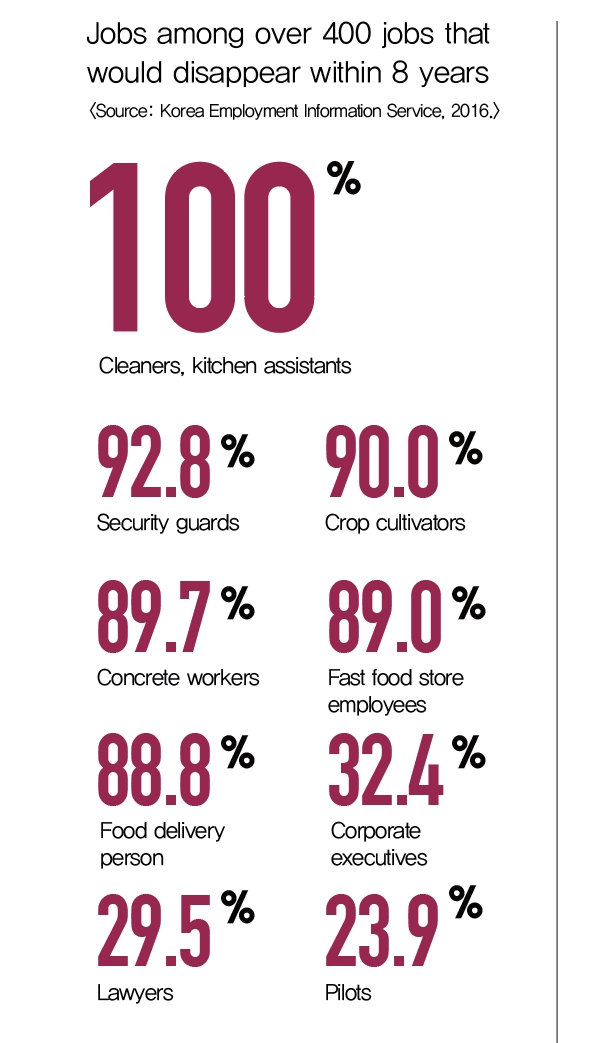Prologue to the era of AI
Jobs that will disappear and remain within 8 years
Artificial intelligence (AI) is ‘technology that combines the learning, inference, and perceptual
abilities of human to understand natural language by using computer programs.’ Just has how
steam engine and electricity had led to the industrial revolution, AI is the core engine that has
brought about the 4th Industrial Revolution and is already spreading not only in industry but also
in the field of information technology. AI, which merely executes simple orders, is equipped with
massive data and computing power due to software development, expansion of computational
abilities of processors, and the development of competitive quantum computing are opening
the doors to a transition of a new era. With AI quickly evolving, it is now possible to achieve the
future that we have once dreamed of: safe unmanned vehicle, convenient and accurate medical
examinations, fast and safe disaster and crisis management. AI has already surpassed human
abilities in several fields. Perhaps it’s only natural for us to be afraid that one day AI will transcend
humans, just like the movies. How can we coexist with the amazing technology of AI?
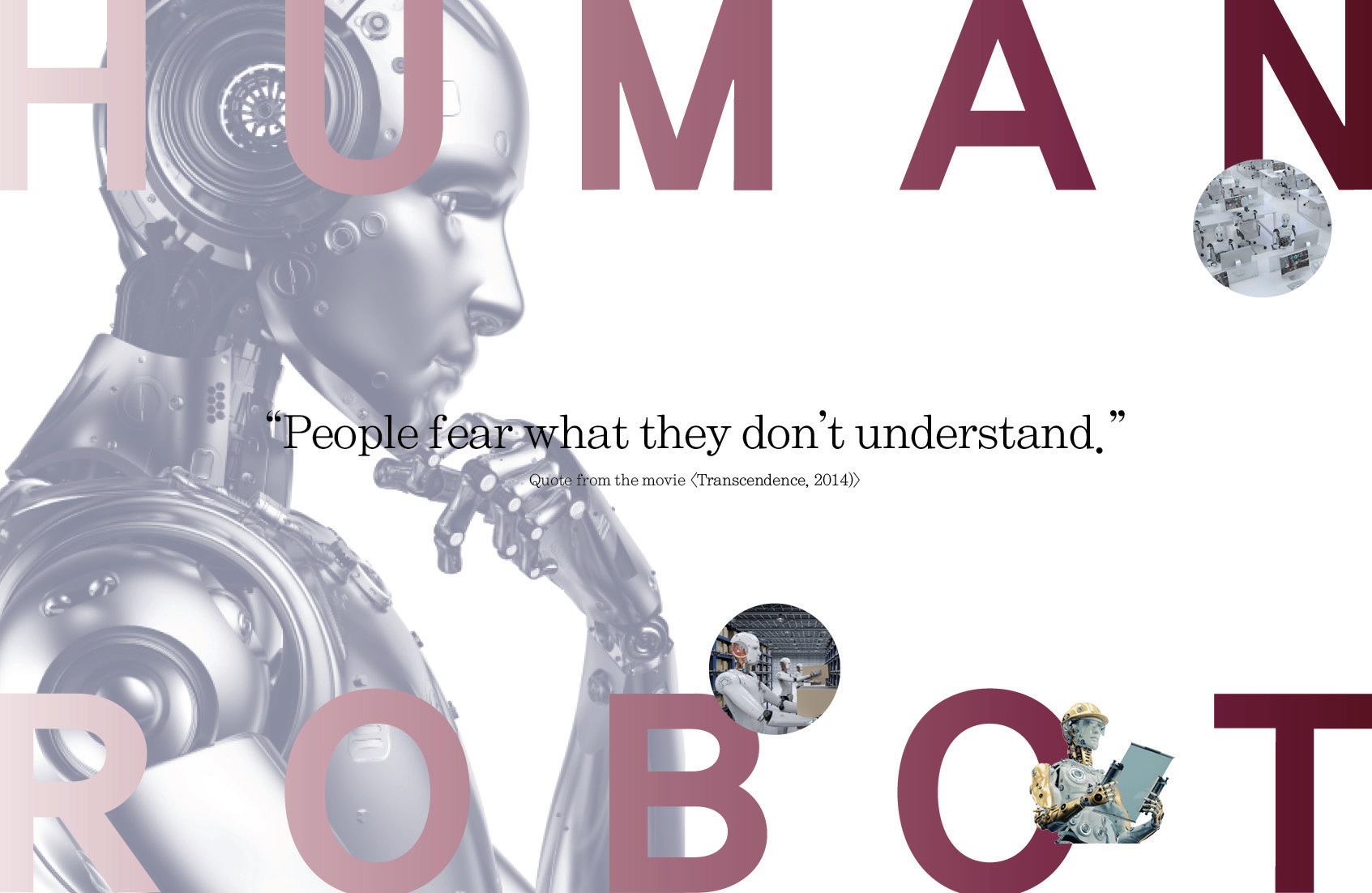
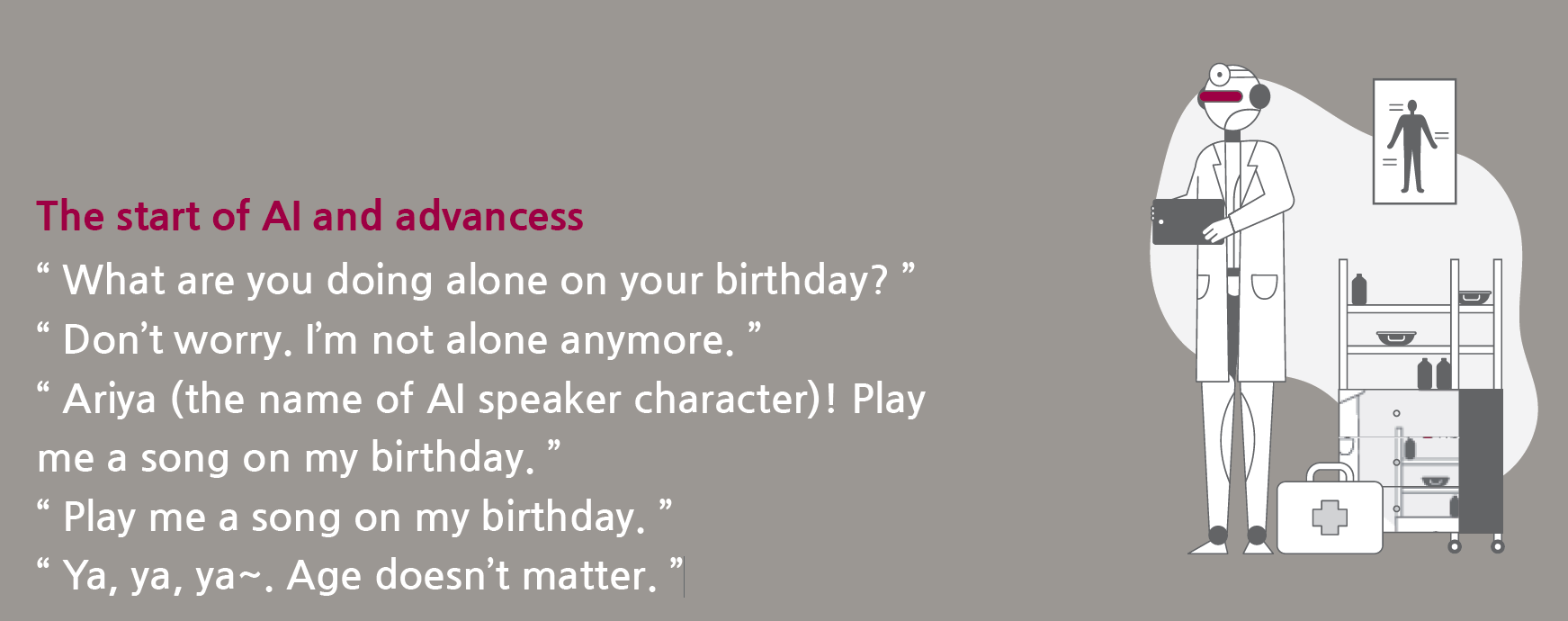
People are asking AI speakers for weather forecasts and the latest songs. The AI service that offers
companionship to elderly people living alone in a TV advertisement is all the more touching.
However, the history of AI development wasn’t all glitter and gold until recently. The start of
AI goes back to the 1950s when the British mathematician Alan Turing described the method
of testing whether machines can think, the possibility of developing intelligent machine, and
machine learning in his seminal paper, “Computing Machinery and Intelligence.” The term AI was
first used at the Dartmouth Workshop which was held in 1956 by Professor John McCarthy from
Dartmouth College. Since then, although neural network-based AI research was carried out by a
few neurologists and scholars, the developments were insignificant. From then on, the decisive
moment for AI has been the past five years. Research on AI that recognizes external information,
learns, infers, and acts like a human have become active. Now, AI is capable of independently
receiving and learning information by processing and understanding huge amounts of external
data. Since 2016, with research on reinforcement learning that learns the intended goal by
itself through trial and error, AI has taken one step closer to the thinking abilities of humans. AI
research in the field of behavior based on inference and prediction that were considered to be
distinct characteristics of humans is unveiling new possibilities. The development of AI has just
started to pick up speed.
One day the Als are going to look back on us the same way we
look at fossil skeletons on the plains of Africa. An upright
ape living in dust with crude language and tools, all set for
extinction.
- From the movie <Ex Machina>
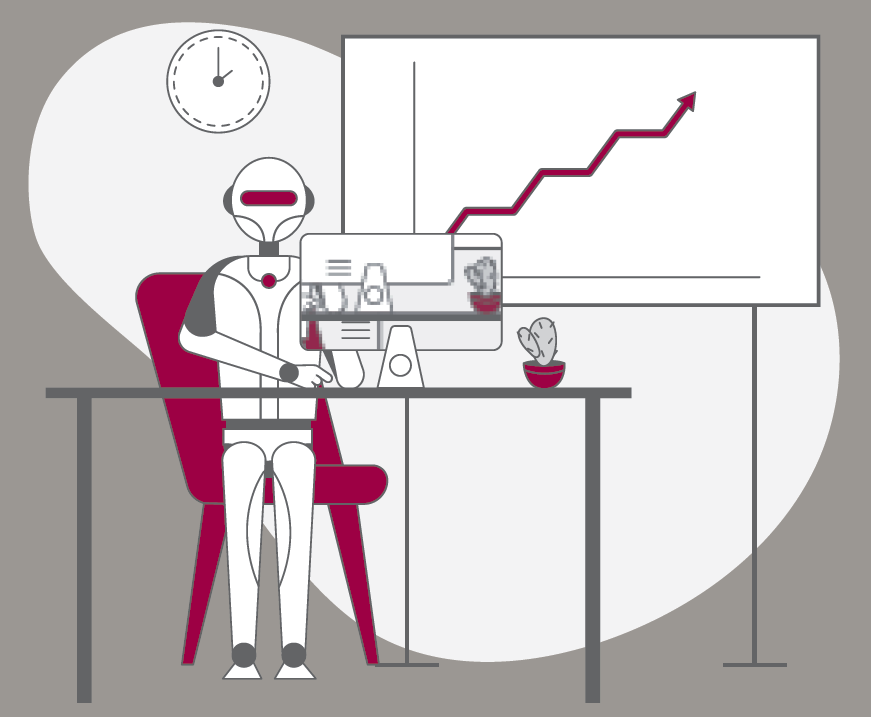
One thing that is more surprising than the development of AI in the past five years is the fact
that key countries and companies are already applying the output of AI research in products
and services for commercialization. Google and Facebook has secured accuracy close to 100%
in face recognition technology by utilizing deep learning and Amazon has registered patents for
anticipatory shipping, which predicts payments and starts shipping procedures in warehouses
upon log-in by using AI. Moreover, AI is being utilized in professional fields, from legal to medical.
If related journals or the latest research data and clinical data could be imported by AI that has
learned tens of thousands of examples from professional fields can be materialized, people
would be able to receive judgments and diagnoses that would be more accurate than skilled
professionals with in-depth experiences. Automatic driving is also no longer a dream. NVIDIA,
an American semi-conductor manufacturer revealed the world’s first AI computer that has been
designed to develop fully autonomous taxis and Tesla’s Autopilot has reached a level of 100%
autonomous driving without human intervention. We’re also seeing the advent of AIs that have
and express emotions. Pepper, a robot developed by SoftBank in Japan is equipped with AI called
‘emotion engine,’ which is capable of empathizing with user’s sadness and sharing happiness. In
Germany, AI has completed Beethoven’s ‘10th Unfinished Symphony’ and an AI painter, Deep
Dream developed by Google has painted 29 artworks in total that have been sold at US$ 97,000.
Small fear that AI has posed
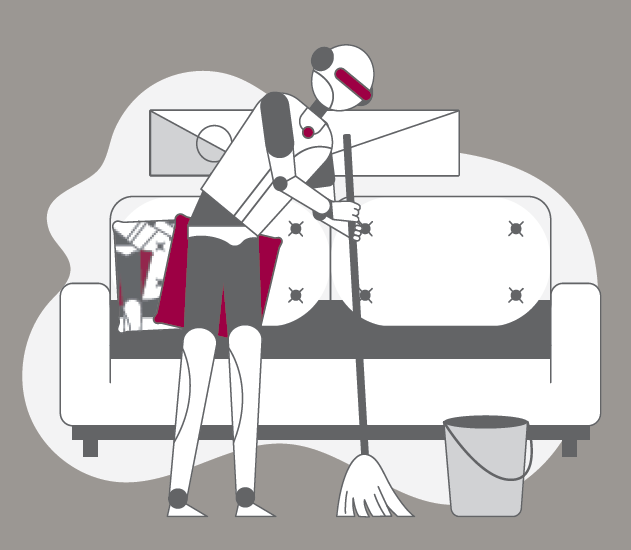
In the MBC documentary, , there were
scenes of a bus driver worrying about his job as he glances
at an unmanned bus equipped with AI and a low-wage day
worker assisting a computer recognizing houses in aerial
maps during while working from home, which gained a lot of
sympathy from the viewers. In this context, we try to imagine
the advent of AI that is far above humans. It’s a fearful thing.
The development of AI is related to the survival of humans.
Stephen Hawking and Elon Musk mentioned that AI and
robots would bring about the extinction of mankind. However,
the more urgent matter to us is the fact that jobs will gradually
disappear. A report announced by a research team from
Oxford University Martin School in UK in 2013 predicted
that close to 47% of jobs among 702 jobs in the US would
disappear in the next 20 years due to the advancement of AI.
It foresaw that general labor jobs throughout all industries
such as telemarketers, watch repairer, librarian, data inserter,
cashier and toll collectors would be greatly affected. The same
goes for professionals, as well. The biggest development of
artificial intelligence is being concentrated in the so-called
professional fields. So, perhaps it’s only natural that we feel
anxious about AI as it can exhibit capacities surpassing humans
in the fields of medicine, finance, resource development,
disaster rescue and the like. The result of research by Oxford
University predicted that 1 out of 3 existing jobs would
disappear in 20 years.

The force of humans that would pioneer AI
Many scientists and entrepreneurs predict that countless number of jobs would
disappear because of artificial intelligence. This includes the medical field, as
well. If so, would AI be able to replace doctors? One thing for sure is that AI is
capable of acquiring new medical knowledge and technology faster than humans
and more reasonable decisions can be made for the treatment of the patients.
However, would AI be able to fully understand the suffering, anxiety, anger,
and frustration that patients feel? Prior to diagnosing illnesses, communicating
with the patient is the duty of a doctor. There is no moral standard in AI, and it
doesn’t select values that humans pursue. Errors exist and in the worst case, and
it can be misused. It requires human judgment and supervision. AI can never
replace a doctor. Creativity, sensibility, and ability to communicate that can only
be achieved by humans are the biggest challenges to AI.
AI is going to provide amazing advantages to mankind that we have never
dreamed about so far. Therefore, the world is competing to gain an upper hand
in AI. One thing worth noting is that the AI technology gap between advanced
countries and South Korea is significant. This is because of a late start. Efforts to
secure high quality data and enhance competence for developing competitive
AI are imperative. Above all, support is required in order to foster high standard
professionals. Are you still afraid of the future that AI will be creating? It would
be worth looking forward to.





